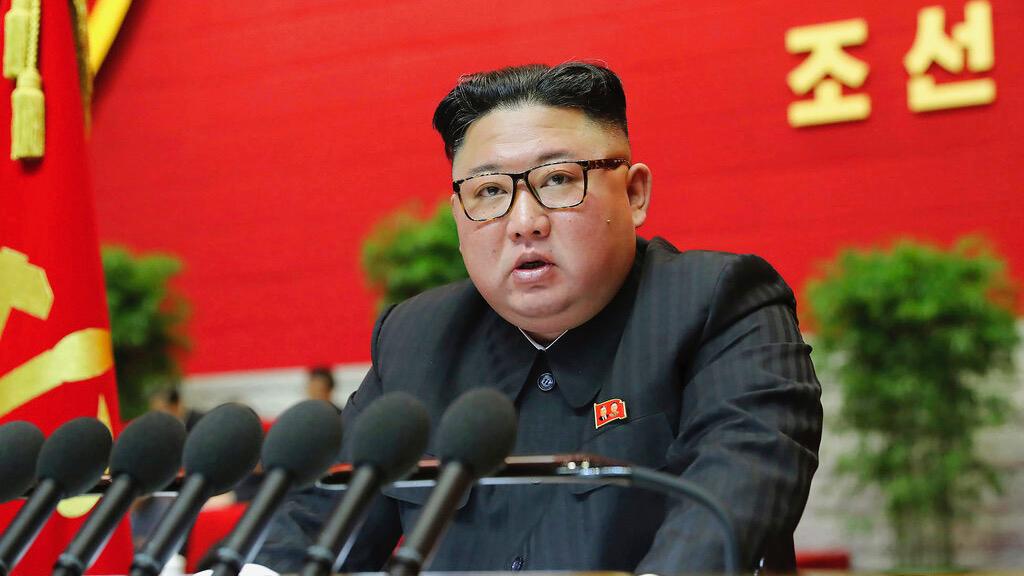To gauge how North Koreans are faring, find out what’s inside their food bowls.
If more families are eating rice, that’s a promising sign.
“Rice is middle-class food. If you’re working-class, or really poor, you eat corn.”
“Rice is middle-class food,” said Fyodor Tertitskiy, an expert on North Korea at Kookmin University. “If you’re working-class, or really poor, you eat corn.”
Related: A post-America world: Biden’s challenges begin at home
At the moment, demand for corn is shooting up, a consequence of severe economic pain. Poor and isolated in the best of times, North Korea is now even more cut off from the world. To defend against COVID-19, the regime has almost totally sealed its border with China — a lifeline for goods and food.
“I wouldn’t rule out the possibility of a famine in North Korea,” Tertitskiy said. “Which would seem nearly impossible a year ago. But things are really that bad.”
This crisis is worsened, of course, by the usual sanctions, imposed by the United States and United Nations, which strangle the North Korean economy, cutting it off from the global financial system.
US officials have clung to a belief that, under maximum duress, the regime might capitulate and give up what leader Kim Jong-un calls its “sword of justice”: nuclear missiles that can scare the United States out of invading.
Related: How would Team Biden handle a showdown with North Korea?
This is the scenario that sanctions are designed to induce. But outside of Washington, DC, this is largely seen as a fantasy. Indeed, during these desperate times, the Kim regime is actually growing more strident.
The state’s ultraconservatives are ascendant, Tertitskiy says, and feel emboldened enough to roll back what most Western observers would call progress.
The ruling Communist Party signaled at a recent summit that mistakes had been made. Kim Jong-un himself said: “Comrades, our people have placed trust in me, high as the sky and deep as the sea, but I have failed to always live up to that trust. I am sorry.”
He even wept a bit. But do not hail the dictator’s apology as progress. He was sorry, Tertitskiy said, for “expecting miracles” from taking steps in a more liberal direction.
In recent years, North Korea has allowed the winds of capitalism to blow in, permitting subjects to shop in semi-free markets (though they must officially register as state entities.) Pyongyang has become a world of smartphones, with pizza shops for the elites and shop windows displaying fake Nikes.
Related: What it’s like to visit a North Korea-themed pub as a defector in South Korea
Those liberties might not last, at least in their current form. The party has decreed that the state must restore its iron grip on the economy. Some seem nostalgic for days when North Korea was a nearly cashless society with citizens relying on the state to give them everything — from potatoes to pants to farm tools.
“I don’t think they can completely rebuild [that system]. Or return to full-scale economic control. It’s just that they want to. And this is very, very bad.”
“I don’t think they can completely rebuild [that system]. Or return to full-scale economic control,” Tertitskiy said. “It’s just that they want to. And this is very, very bad.”
The Kim dynasty’s other liberal gambit — sitting down with former President Donald Trump — was a failure. It ended in 2019 with Trump calling Kim Jong-un “quite a character” but never wiping out any sanctions. That was the regime’s ultimate goal.
This has empowered, Tertitskiy said, all of the hard-line ideologues who believed the US would only humiliate them in the end.
The outcome is a North Korea that is now more solipsistic than before — and even nostalgic for its Stalinist past.
South Korea’s leadership has hoped its estranged sibling, feeling desperate, would put aside their rivalry and accept aid, namely in the form of medical equipment to protect against COVID-19. The regime has refused outright. Kim Yo-jong, the leader’s sister, recently referred to South Korea’s leaders as “top-class idiots.”
Nor does Pyongyang appear eager to make nice with newly inaugurated US President Joe Biden. In January, Kim Jong-un reiterated to the world — as he debuted a new super-powerful missile — that the US is “our biggest enemy … no matter who is in power.”
Related: North Korea destroys liaison office on border with South in ‘terrific explosion’
The particulars of Team Biden’s North Korea plans are not yet known. He may be tempted to mimic his old boss, Barack Obama, and pursue his signature policy: “strategic patience.”
“Strategic patience is a good expression for doing nothing,” Tertitskiy said. Nothing new, at least — other than trying to choke the life out of North Korea with sanctions.
The North Korea scholar does not expect any creative problem-solving from the new White House.
“Engagement with Kim Jong-un is now tainted because Trump did it — and Trump is extremely unpopular with Biden’s base. Maximum pressure is already happening. And war is out of the question. So, what can Biden do?”
Meanwhile, North Korea will continue honing its sword of justice, which can already strike much of the US, possibly all of it.
Duplicitous as it may be, the regime was not lying when it recently boasted of possessing the “world’s most powerful weapon,” an intercontinental nuclear-armed missile. Since they believe these weapons are the prime insurance against invasion, it appears no amount of American cajoling will ever convince them to give up the nukes.
